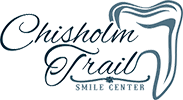When a dental emergency arises at an inconvenient moment, it can feel overwhelming. Signs that you must visit an emergency dentist include (but are not limited to):
- Your teeth are loose or have fallen out
- You are feeling significant oral discomfort
- Your jaw, face, or neck are swollen
In case of a dental emergency, please follow these four suggestions.
1. Remain Calm and Focused
Decision-making can be difficult in times of crisis. However, patients can make more informed decisions by remaining composed and slowing down. Ironically, Professor Barry Schwartz of Swarthmore College discovered that the most prominent reason people fail to decide is their fear of making the wrong choice. Instead of leaving you out in the cold to wonder what the next correct steps are in case of a dental emergency, we’ve lined them out for you.
- Stay calm.
- Take a moment to assess the damage.
- Schedule an appointment with an emergency dentist in your local area.
- Arrange a ride to and from the dental clinic. (In case you may not be in the mental state to operate a moving vehicle.)
2. Safely Manage Discomfort
While dental emergency symptoms vary from case to case, it’s vital to control adverse effects as much as possible until visiting the emergency dental clinic. It’s no secret oral pain can be debilitating, and toothache is the most common cause of oral pain. For mild to moderate pain, take NSAIDs. However, it’s important to note that self-medication through excess pain relievers and drugs is dangerous. If the discomfort becomes unbearable, please visit the emergency room until you can see the emergency dentist. Whether your mouth hurts from an abscess, dental injury, or other reasons, an emergency dentist can help treat the root cause of your pain for prolonged relief.
3. Rinse with Saltwater
Although “rubbing salt in a wound” is typically synonymous with making an event worse, saltwater can help keep the mouth hygienic. Many oral bacteria are salt-sensitive, so rinsing with saltwater can eliminate bacteria that can cause wounds to worsen. Creating a saline rinse is simple: mix one teaspoon of salt with eight ounces of water.
It’s important to note that increasing the water does not increase the efficiency of killing bacteria. Simply, warm water only helps the salt dissolve faster.
4. Abstain from Eating and Drinking
Again, it’s essential to keep an oral wound as clean as possible before visiting the emergency dentist. Besides water, we advise patients to avoid eating and drinking until they have been checked out and received necessary instructions for mealtimes.
When you eat and drink, pressures in the mouth change. Therefore, consuming foods and fluids can increase the risk of damage, levels of discomfort, and irritation. The act of chewing puts pressure on the teeth, which can be detrimental in many dental emergencies. For example, if a tooth is fractured, it may eventually fall apart due to chewing forces. Likewise, using a straw reduces air pressure in the mouth and may lead to a dry socket if a tooth is newly missing.
To play it safe, patients must keep their mouths relaxed and rest until they visit the emergency dentist.
Call Our Emergency Dentist Right Now
To summarize, a dental emergency can be alarming, but it’s essential to follow the three C’s and be (1) calm, (2) clean, and (3) cautious before visiting the emergency dentist. Whether someone has suffered from dental trauma or an oral health complication has escalated, visiting an emergency dentist may turn out to be necessary. Give our experienced emergency dental team a ring as soon as possible to find out how we can help. Call (580)-255-4880 or contact us online to schedule an emergency dental appointment in Duncan, OK.







